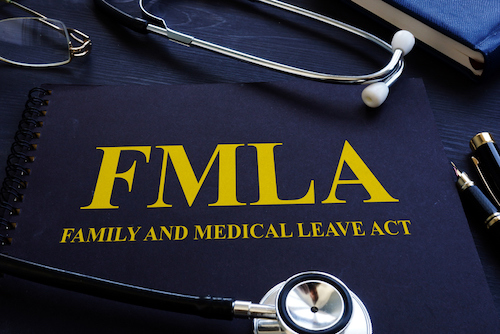Update: The Families First Coronavirus Response Act H.R. 6201
We have gathered the updates you need to know released by the Department of Labor (DOL), Internal Revenue Service (IRS) and U.S. Department Of The Treasury regarding the Families First Coronavirus Response Act (FFCRA).
We kindly ask that you take a moment to familiarize yourself with these updates and reach out to MRPR if we may be of further assistance.
Topics: Tax Topics, COVID-19 Updates
On March 21, 2020, the Internal Revenue Service released Notice 2020-18, providing information and guidance to taxpayers as the United States addresses the global COVID-19 (Wuhan coronavirus) pandemic. President Donald Trump issued an emergency declaration on March 13, 2020, empowering Treasury Secretary Steven Mnuchin to grant certain relief to taxpayers as more and more sectors of the U.S. economy are shuttered or otherwise contracted to slow the spread of the virus.
Topics: Tax Topics, COVID-19 Updates
On Wednesday, March 18, 2020, the Families First Coronavirus Response Act H.R. 6201 was signed into law by President Trump after the Senate passed the bill by a 90-8 vote. The Act contains provisions for paid leave for employees, tax credits for business owners, COVID-19 testing, unemployment insurance and additional funding for government programs. The bill takes effect no later than April 1, 2020, and it will sunset on Dec. 31, 2020.
Topics: News, COVID-19 Updates
As the federal government and state governments across the country struggle to deal with the ongoing COVID-19 (Wuhan coronavirus) pandemic, state tax agencies are offering relief to taxpayers as the economy adapts to the social distancing requirements prescribed by the Centers for Disease Control (CDC). Michigan is following suit by extending certain protections to affected taxpayers.
Topics: News, COVID-19 Updates
Please see the most recent update regarding the IRS Extended Tax Payment Deadline Notice.
On March 18, 2020, the Internal Revenue Service released Notice 2020-17, providing information and guidance to taxpayers as the United States addresses the global COVID-19 (Wuhan coronavirus) pandemic.
Topics: Tax Topics, COVID-19 Updates
Your Individual Retirement Plan and The SECURE Act (Pt. 1)
On December 20, 2019, the Setting Every Community Up for Retirement Enhancement Act (SECURE Act) was signed into law by President Trump. The SECURE Act made many significant changes to the treatment of retirement and other savings plans and corrected a few unfavorable changes that had been put in place from the TCJA.
Topics: Accounting Hot Topics
As Ben Franklin said, “In this world, nothing can be said to be certain, except death and taxes.” As the tax laws continue to evolve, you can’t even be certain about taxes anymore. Read on for a roundup of five tax headlines that taxpayers should know about in the new year.
Topics: Tax Topics
Confused About New Meals & Entertainment Expense Rules?
The 2017 Tax Cuts and Jobs Act (TCJA) made significant changes to business provisions that affect a company's ability to deduct meals and entertainment (M&E) expenses.
Topics: Tax Topics
Running a Business Without a CFO? What You Should Know
There are many different functions associated with running a business, including marketing, administrative, and overall operations of the company. For many organizations, the finance and accounting function can be an overlooked area of the business as other areas may require more immediate attention. A Chief Financial Officer (CFO) can provide the financial acumen necessary for a company to develop a roadmap for financial growth and address current financial issues within the organization.
Topics: Business Planning & Operations
A 401(k) plan is a common retirement savings option that is offered by many employers to their employees. It's important that companies know once an active participant threshold of 100 is met, the US Department of Labor (DOL) requires a certified audit of your 401(k) plan by a CPA firm. This is because there are risk factors that could impact your plan. Let's look at three of them, and how a 401(k) audit can protect you from these risks, and from financial liability.
Topics: Business Planning & Operations, Accounting Hot Topics











